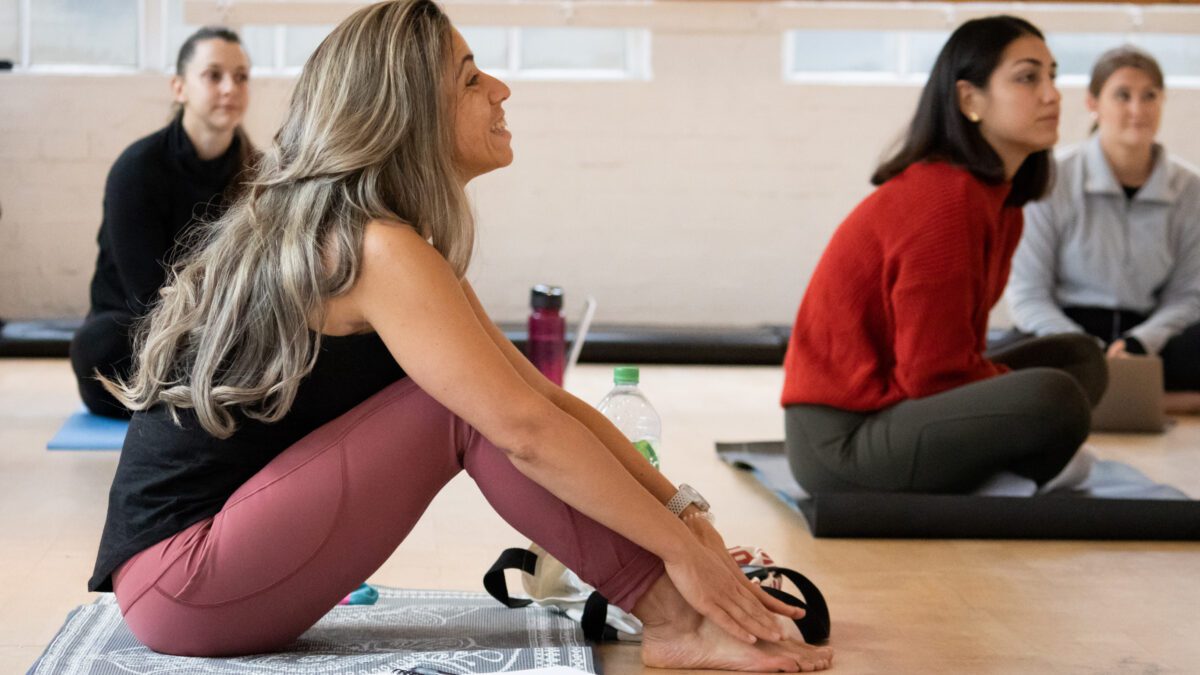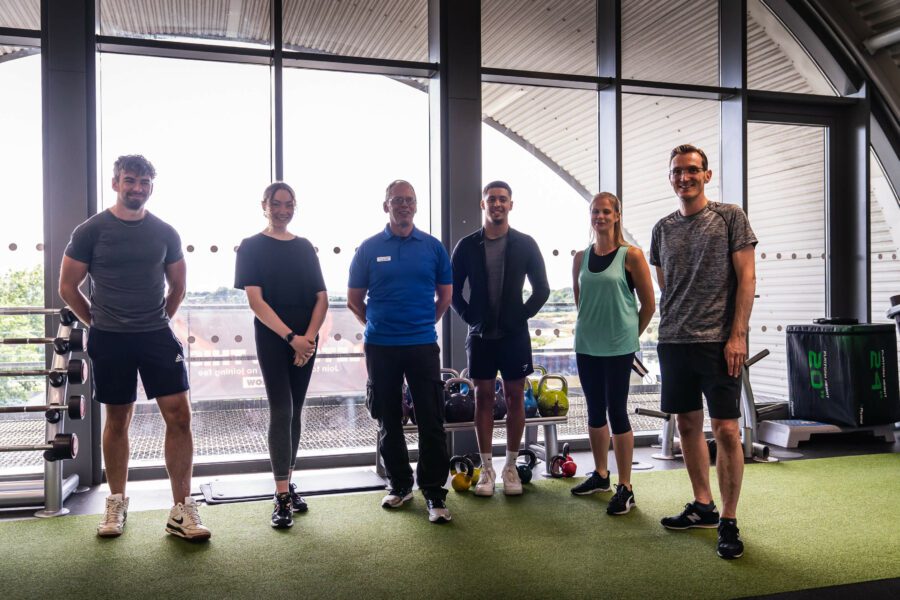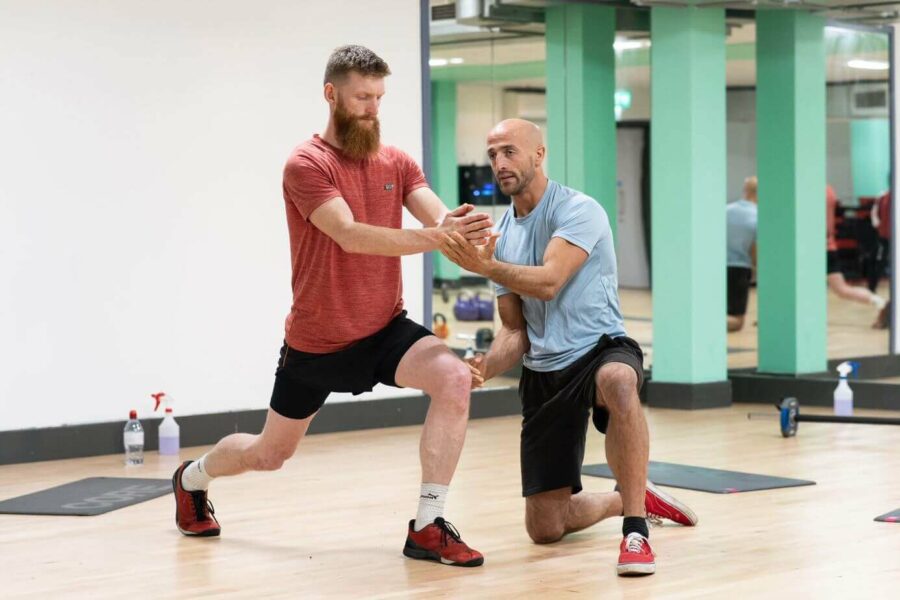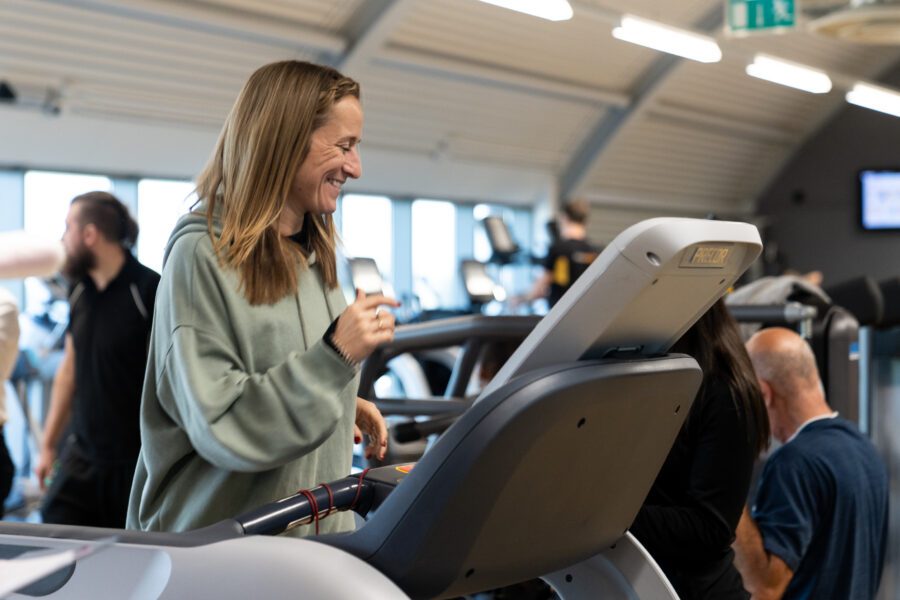

Regular exercise can positively impact mental health conditions such as depression, anxiety, and ADHD. When completing exercises, your brain stimulates chemicals that help improve your memory, increase your energy, and boost your overall mood. Since the pandemic, studies have shown that people’s reasons
for working out have shifted in motivation, from strength and physique to
“stress reduction, anxiety relief, and improved sleep”. As we emerge from lockdowns once again, getting back into fitness is a great way to build back mental and physical resilience, reduce anxiety, and potentially even build back social networks.
To celebrate Mental Health Awareness Week, as well as to help you learn more about the key benefits of exercise to mental health, we encourage you to get inspired to exercise by reading up on these benefits:

Research shows that one in 3 of us suffers from poor sleep, with busy schedules and computers often to blame.
A lack of sleep profoundly affects our mood, productivity, immune system, and even our weight. If you find falling asleep challenging, exercise can help. The increased body temperature that occurs during exercise is believed to help improve sleep quality. One study into the link between physical activity and sleep found that 150 minutes of moderate to vigorous activity a week, which is the national guideline, can provide up to 65% improvement in sleep quality.
Keep in mind that exercise in the evening may have an adverse effect. You might find yourself feeling energised and unable to switch off. Instead, try relaxing exercises such as yoga.

From losing weight to improving muscle tone, regular exercise positively influences our self-esteem and self-image. Regardless of our body image, exercising can help boost our minds and spirit.
In short, exercise enhances our mood and makes us feel good about our physical selves. Goal setting is a great way to improve mental agility by providing a sense of achievement after accomplishing a goal.
This doesn’t need to be time conscious; far from it to avoid putting unnecessary pressure on ourselves. Having a goal in mind of how you want to feel and what doing these exercises means for you beyond physical fitness can be a great de-stressor and motivator.

Increasing your heart rate will give you the get-up-and-go to help combat your day. Any exercise that gets your heart rate rising and blood flowing will release endorphins which help boost energy levels. Cardiovascular and resistance training are two forms of exercise that fight off feelings of tiredness.
If you are recovering from COVID-19, doctors recommend light aerobic exercises, such as walking, to regain movement and build up resilience. Walking is also a great way to get outside, clear your head, and gain essential vitamin D. Equally, working with body weight only can help regain muscles before hitting the weights again.

Stress affects us all. Most of us are used to being stressed, but too much can wear you down, physically and mentally. We may experience symptoms such as increased breathing, heart rate, and tightened muscles. Engaging in mindful activities promotes relaxation and helps in alleviating daily stresses.
Chronic stress significantly contributes to mental health conditions such as depression and anxiety. The overproduction of hormones is the reason for most stress-related illnesses. Working up a sweat can help release endorphins in the brain, helping to relax muscles and relieve tension in the body.

Exercise doesn’t have to be time-consuming and tedious. Before you start, try to set realistic and attainable goals. Setting realistic goals will help create a workout routine that you will both enjoy and stick to. Here are some things to consider before getting started;

Physical activity is a great way to boost your mental health and feel-good endorphins. The benefits go beyond just wanting to look physically fit, but can help give you a sense of control, improve your mindfulness, and help regulate your breathing and regain your connection with your body. Getting into fitness can seem daunting, especially after a year of isolation and lowered activity levels.
Taking small steps, joining a new class, and getting out of your comfort zone can help reduce anxiety and improve your mental health and, who knows, may even ignite a passion you could turn into a new career (for which we would definitely recommend checking out our courses!)
Did you know that not all mental health conditions are visible? At Future Fit, our fitness professionals and nutritionists are responsible for understanding how invisible factors can influence individuals’ performance, health and wellbeing. Read more about what it feels like living with invisible illnesses.